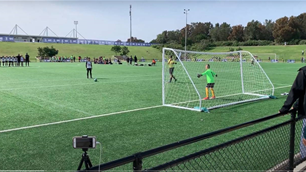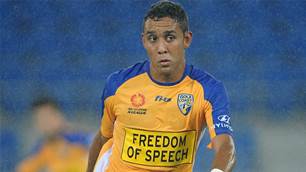A-LEAGUE chief Lyall Gorman has launched a stern defence of the league's match review process after PFA boss Brendan Schwab had earlier claimed aspects of the system represented a 'denial of natural justice'.
While Gorman wouldn’t respond directly to claims by Schwab that the revamped MRP system, which sees the Disciplinary Committee impose sanction without a hearing, would not stand up in a court of law, he said the system was consistent and fair and was aimed at ridding the game of unwanted aspects such as simulation.
The PFA's grievance arose after Perth's Michael Baird and Central Coast's Patricio Perez were suspended for two matches for simulation during last weekend's A-League's matches.
Gorman said FFA was committed to stamping out simulation and that the two-match suspension was a considerable deterrent.
"The amendments that were brought in prior to last season which saw the introduction of a retrospective review process to determine and sanction simulation was supported by clubs with the overwhelming majority supporting the sanction being a two-match suspension," Gorman said in a statement.
"The MRP in effect sits in the shoes of the referee to detect incidents that have gone unnoticed and rectify on field incidents that require rectification. Simulation is one of these but only where it has been successful and brought serious disadvantage to the other team."
Gormon said acts of simulation, such as those Perez and Baird had been found guilty of, were an equivalent offence to a red card and that negated any need for an appeal.
"Consistency is important. At the end of the MRP process, a player found to have committed simulation is in the same position as a player found to have committed red card offences. There is no appeal on the finding of guilt to the Disciplinary Committee in any of these cases," he said.
"The only appeals that can be made to the Disciplinary Committee for red card matters relate to the question of sanction. This is because there is an open-ended range for most red card offences and sanctions will vary based on the degree of seriousness of the offence.
"The sanction is intended to act as a significant deterrent to players."
Related Articles

Fresh talent flock to ambitious A-League outfit's pro pathway

Why A-League 20/21 is crucial for Olyroos’ medal hopes













